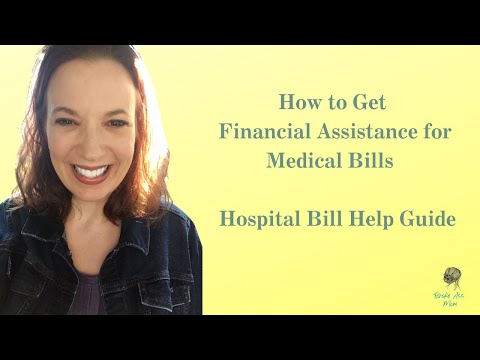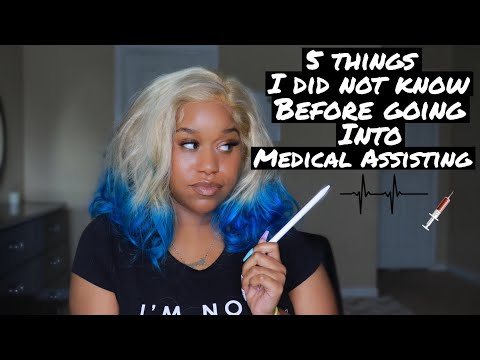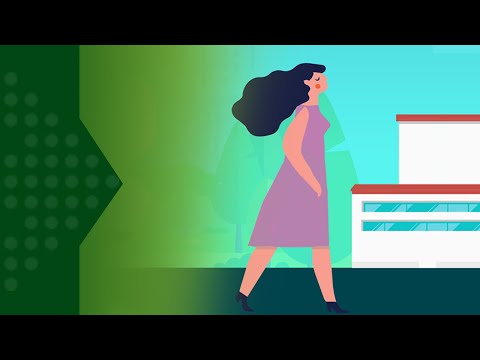Financial Assistance for Medical Bills
Contents [show]
If you’re struggling to pay medical bills, you may be able to get financial assistance from the government, charities, or hospitals. Learn more about your options.
Checkout this video:
What are some common ways to get financial assistance for medical bills?
There are a number of ways to get financial assistance for medical bills. Some common methods include:
-Government assistance programs: These programs can provide financial assistance for medical bills, as well as other basic living expenses. Examples of government assistance programs include Medicaid, Medicare, and Social Security Disability Insurance (SSDI).
-Private charities: There are a number of private charities that provide financial assistance for medical bills. Some examples include the American Cancer Society and the National Foundation for Women’s Health.
-Crowdfunding: Crowdfunding is a relatively new way to get financial assistance for medical bills. With this method, people can solicit donations from friends, family, and strangers through online platforms such as GoFundMe and Kickstarter.
-Payment plans: Many hospitals and doctors’ offices offer payment plans that allow patients to pay off their medical bills over time. These plans typically require patients to make monthly payments until the bill is paid in full.
What are some government programs that can help with medical bills?
There are a few different government programs that can help with medical bills. Medicaid is a program that helps low-income individuals and families pay for medical care. Medicare is a program for people who are 65 years or older, or who have certain disabilities. The Children’s health insurance Program (CHIP) provides health coverage to children in families who earn too much money to qualify for Medicaid, but cannot afford private health insurance
What are some private programs that can help with medical bills?
There are a number of private programs that can help with medical bills. Some of these programs are run by charities, while others are run by religious organizations or community groups. Some companies also offer financial assistance for employees who have large medical bills.
What are some tips for negotiating with medical providers?
If you are struggling to pay your medical bills, you may be able to negotiate a payment plan or reduced amount with your provider. Here are some tips to keep in mind when negotiating:
-Start by asking for a reduction in the total amount owed. You may be surprised at how willing some providers are to negotiate.
-If you can’t get a reduction in the amount owed, ask for a payment plan with smaller monthly payments.
-Be sure to ask about any interest or late fees that may be added on to your bill. See if you can get these waived or reduced.
-If you are using a credit card to pay your medical bills, Ask the provider if they offer a discount for cash payments.
Remember, it never hurts to ask! The worst they can do is say no.
What are some tips for reducing medical bills?
There are a number of things you can do to try to reduce the amount you owe for medical care.
First, always make sure to give the hospital or doctor’s office your most up-to-date insurance information. This will help ensure that you are only responsible for charges that your insurance company does not cover.
Second, if you do not have insurance or your insurance does not cover the full cost of your treatment, be sure to ask about discounts or financial assistance programs that may be available. Many hospitals and doctor’s offices have programs in place to help patients with limited means pay their medical bills.
Third, if you are struggling to pay off your medical debt, you may want to consider talking to a financial counselor or debt management specialist. These professionals can help you create a budget and develop a plan to get your debts paid off as quickly as possible.
Finally, remember that you have the right to appeal any medical billing charges that you believe are incorrect. If you think there has been a mistake made on your bill, contact the hospital or doctor’s office and ask for an explanation. You may also want to contact your insurance company if you think they have processed your claim incorrectly.
What are some tips for dealing with collections agencies?
Debt collectors aren’t going away anytime soon, unfortunately. Here are some tips on how to deal with them, courtesy of the Federal Trade Commission:
-Know who you owe. If a debt collector contacts you about a debt, ask for the name of the creditor, the amount of the debt, and what it pertains to. If you don’t have this information, tell the debt collector that you need time to verify the debt. You have 30 days to do so.
-Get it in writing. Once you know who your creditor is and how much you owe, ask the debt collector to send you a written “validation notice.” This notice will include the amount of the debt, the name of your creditor, and your rights under the Fair Debt Collection Practices Act.
-Don’t give in to threats. A debt collector may not threaten you with violence, use obscene language, or falsely accuse you of committing a crime.
-Don’t let them bully you into paying more than you owe. A debt collector may not try to collect more money than you actually owe – even if they threaten to sue you or garnish your wages.
-Negotiate a payment plan. If you can’t afford to pay off your entire debt at once, try negotiating a payment plan with the debt collector. Once you’ve reached an agreement, get it in writing.
-Know when to call it quits. If a debt collector is harassing you or using illegal tactics, tell them to stop – in writing – and then consider taking legal action or filing a complaint with the Consumer Financial Protection Bureau
What are some other resources for dealing with medical bills?
If you’re struggling to pay your medical bills, you’re not alone. According to a recent survey, more than half of all Americans say they have problems paying their medical bills.
There are a number of resources available to help you deal with medical bills. Here are a few of the most common:
-Financial assistance programs: Many hospitals and other medical providers offer financial assistance programs for patients who are having trouble paying their bills. These programs can provide either partial or full coverage for your medical expenses. To see if you qualify, contact your hospital’s billing office or the provider of your care.
-Medi-Share: Medi-Share is a Christian healthcare sharing ministry that allows members to share their monthly healthcare costs with other members. To be eligible, you must be a practicing Christian and meet certain other requirements.
–health insurance If you don’t have health insurance there are a number of options available to you, including health insurance subsidies through the Affordable Care Act. For more information, visit Healthcare.gov or your state’s health insurance exchange website.
-Medical bill advocates: Medical bill advocates are professionals who can help you negotiate with your medical providers to lower your bill or set up a payment plan. You can find a list of medical bill advocates here.
How can I get help if I can’t afford my medical bills?
If you’re struggling to pay your medical bills, there are a few options available to you. You can contact your hospital or doctor’s office to discuss a payment plan. Many hospitals have financial assistance programs that can help cover the cost of your care. You can also check with local charities or social service agencies to see if they offer any assistance with medical bills. Finally, you can try negotiating with your medical providers to get a lower rate.
What should I do if I get a medical bill I can’t afford?
If you have a medical bill that you cannot afford, there are a few options available to you. You can try to negotiate with the hospital or doctor’s office to see if they are willing to lower the bill. You can also look into financial assistance programs that may be able to help you pay off the bill. Finally, you can look into payment plans with the hospital or doctor’s office to try and make the bill more affordable.
How can I find financial assistance for my medical bills?
There are a number of ways to find financial assistance for your medical bills. You can contact your local medical center or hospital and ask about financial assistance programs. You can also look online for scholarships or grants that may be available to help you pay for your medical bills. There are also a number of charities and non-profit organizations that may be able to help you with your medical bills.







